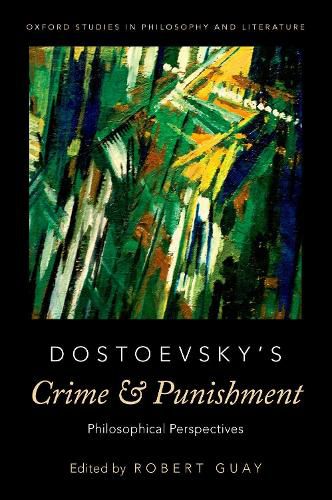Readings Newsletter
Become a Readings Member to make your shopping experience even easier.
Sign in or sign up for free!
You’re not far away from qualifying for FREE standard shipping within Australia
You’ve qualified for FREE standard shipping within Australia
The cart is loading…






The gruesome double-murder upon which the novel Crime and Punishment hinges leads its culprit, Raskolnikov, into emotional trauma and obsessive, destructive self-reflection. But Raskolnikov’s famous philosophical musings are just part of the full philosophical thought manifest in one of Dostoevsky’s most famous novels.
This volume, uniquely, brings together prominent philosophers and literary scholars to deepen our understanding of the novel’s full range of philosophical thought. The seven essays treat a diversity of topics, including: language and the representation of the human mind, emotions and the susceptibility to loss, the nature of agency, freedom and the possibility of evil, the family and the failure of utopian critique, the authority of law and morality, and the dialogical self. Further, authors provide new approaches for thinking about the relationship between literary representation and philosophy, and the way that Dostoevsky labored over intricate problems of narrative form in Crime and Punishment.
Together, these essays demonstrate a seminal work’s full philosophical worth-a novel rich with complex themes whose questions reverberate powerfully into the 21st century.
$9.00 standard shipping within Australia
FREE standard shipping within Australia for orders over $100.00
Express & International shipping calculated at checkout
The gruesome double-murder upon which the novel Crime and Punishment hinges leads its culprit, Raskolnikov, into emotional trauma and obsessive, destructive self-reflection. But Raskolnikov’s famous philosophical musings are just part of the full philosophical thought manifest in one of Dostoevsky’s most famous novels.
This volume, uniquely, brings together prominent philosophers and literary scholars to deepen our understanding of the novel’s full range of philosophical thought. The seven essays treat a diversity of topics, including: language and the representation of the human mind, emotions and the susceptibility to loss, the nature of agency, freedom and the possibility of evil, the family and the failure of utopian critique, the authority of law and morality, and the dialogical self. Further, authors provide new approaches for thinking about the relationship between literary representation and philosophy, and the way that Dostoevsky labored over intricate problems of narrative form in Crime and Punishment.
Together, these essays demonstrate a seminal work’s full philosophical worth-a novel rich with complex themes whose questions reverberate powerfully into the 21st century.